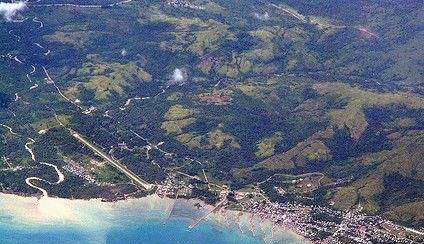In the southern part of the Maluku Archipelago in Indonesia, on the northern shore of the Banda Sea and southwest of Thean Island, there is an island called Ambon Island, also known as Ampona. What happened to its citizens, who had established asia's shortest-lived state and was destroyed by Indonesia in just six months?

In 1513, the first Europeans, the Portuguese, came to Ambon and quickly became the caste of the Portuguese operating in the Maluku Islands. But the Portuguese were often attacked by Muslims from the north of the island, who had trade and religious ties to major cities on the northern coast of Java. The local clove trade was so prosperous that the Portuguese also wanted a piece of the pie before coming to the island and built a factory on the island in 1521. During this period, due to the interference of local forces, the Portuguese did not firmly control the factory until 1580. It was clear that the Portuguese did not have the ability to control the local clove trade.
In 1605, the increasingly powerful Dutch invaded Ambon Andean and drove the Portuguese out of the island without a single shot. Since then, the Dutch have become the rulers of the island. Between 1610 and 1619, the headquarters of the Dutch East India Company was Ambon Island. In 1615, the British also set up a foothold on the island. Unexpectedly, eight years later, it was destroyed by the Dutch. During the Dutch colonial rule, the local population was constantly oppressed and exploited, and even the "Ambon Massacre" was created, and the people of the island suffered a lot.
In 1654, the famous English politician Cromwell consulted with the Dutch government, and finally the Netherlands agreed to compensate 300,000 guilders to the descendants of the Holocaust. Although the Ambons have received compensation, they cannot erase the crimes committed by the Dutch and the pain in the hearts of the Ambons. In 1796, Ambon Island was occupied by the mighty British. Six years later, Britain signed the Treaty of Amiens with the Netherlands, returning Ambon to the Netherlands. The British then reoccupied the island and returned it to the Dutch. Before the nineteenth century, Ambon was the center of the world's lilac trade, and the Dutch banned the cultivation of lilac trees in other colonies to maintain the island's monopoly on the lilac trade. This also allowed the Ambonese to make a lot of money, so they changed their previous views of the Dutch and became closer to them.
On August 17, 1945, just two days after Japan announced its unconditional surrender, Indonesia's founding father, Sukarno, declared Indonesia's independence. The Dutch were very dissatisfied with this and were reluctant to give up this piece of fat. Thus, war broke out between the two sides. In 1949, the war ended in the defeat of the Netherlands and Indonesia gained complete independence.
However, the Ambons were not happy because the Dutch and they had been in a relationship for hundreds of years, and the two sides got along relatively well, even in the Indonesian War of Independence, they sided with the Dutch. As a result, the Ambons proclaimed the Republic of South Maluku on 25 April 1950, while continuing to recognize the rule of the Dutch government. Indonesia had only just become fully independent, and how could it allow the Netherlands to once again have the opportunity to wage a colonial war against itself, so the annihilation of this new country was imminent. The Ambons, indonesia's rivals, were wiped out by Indonesian troops six months later.
After the fall of the South Maluku Republic, the Ambon fled into the mountains and continued to fight against the Indonesian army while working as bandits to maintain a basic livelihood while fighting guerrilla warfare. The government of the Republic of South Maluku, on the other hand, was in exile in the Netherlands, always looking for an opportunity to restore the country. However, the road to the restoration of the South Maluku Republic is difficult and far away.